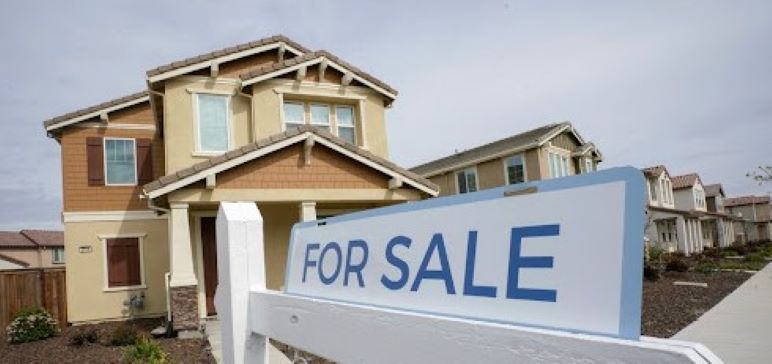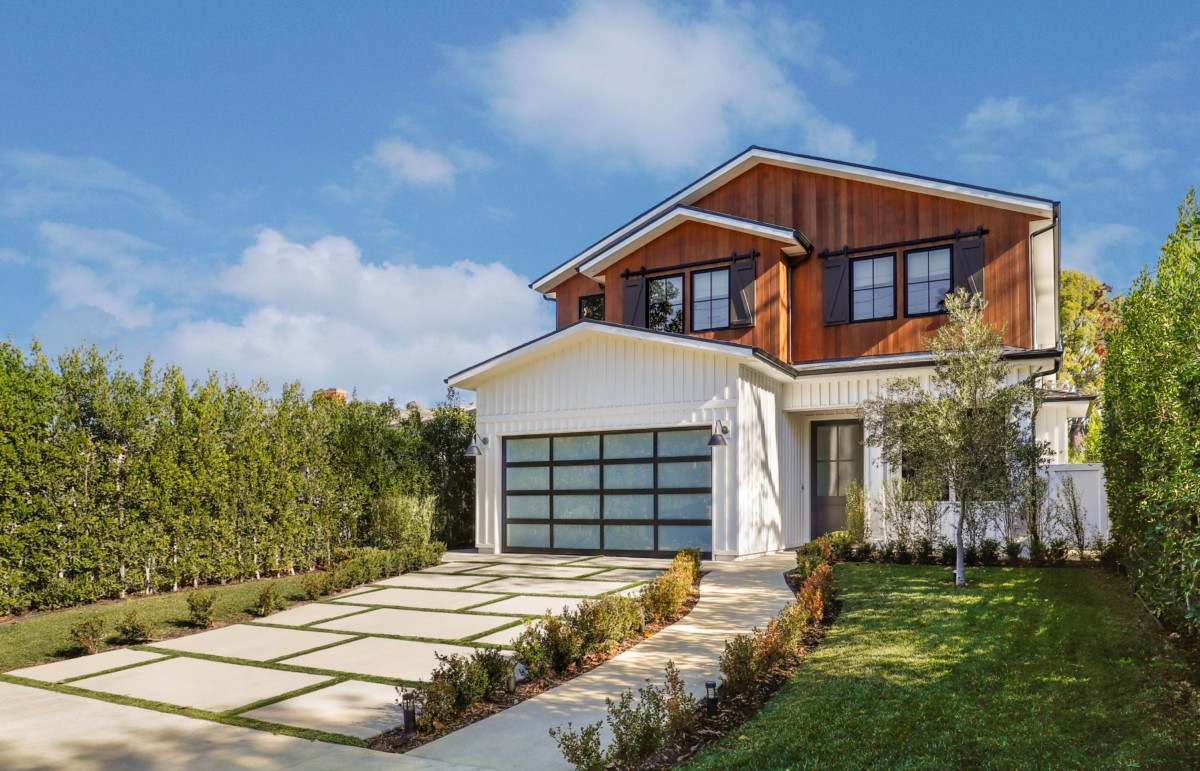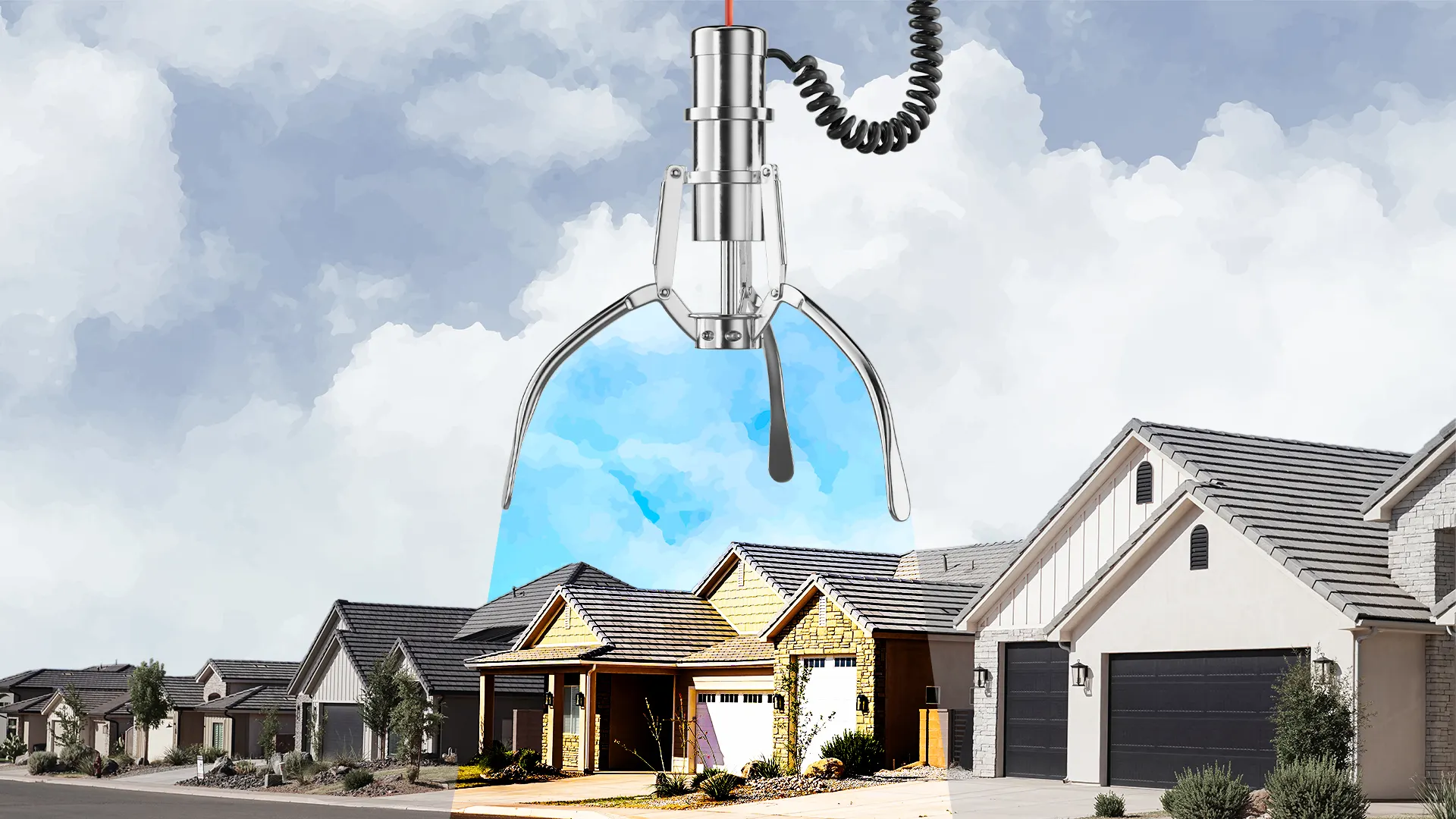#homeownership
#homeownership
[ follow ]
#housing-affordability #housing-policy #gen-z #personal-finance #real-estate #housing-market #financial-planning
fromBusiness Insider
2 weeks agoWe bought a house in the city with a 2.75% mortgage rate. After a few years, we feel trapped and want out.
It had everything we wanted as twentysomethings in the city - convenience, charm, great views. Over time, however, our needs have changed, and it's no longer the right fit for us. The only problem? We bought it shortly after the start of the COVID-19 pandemic, when rates had plummeted to historic lows. In fact, we locked in a 2.75% mortgage rate - so now we feel trapped in a house that no longer checks all our boxes.
Real estate
Relationships
fromSlate Magazine
3 weeks agoI'm Much Richer Than My Girlfriend. I Dream of Giving Her a Big Gift, But Something Is Holding Me Back.
A wealthy 77-year-old man contemplates using his assets to materially assist his lower-income, retired-teacher girlfriend while navigating economic disparity and living separately.
Real estate
fromBoston Condos For Sale Ford Realty
1 month agoIs Tapping 401K To Buy A Boston Condo A Good Idea? Boston Condos For Sale Ford Realty
Using 401(k) funds for a home risks long-term retirement by causing permanent loss of compound growth, taxes, penalties, reduced liquidity, and job-related loan exposure.
fromwww.housingwire.com
1 month agoTapping a 401(k) for homeownership is risky business
Financially, the American dream should not be homeownership, but should be financial independence, Robert Johnson, CEO of Economic Index Associates and a professor at Creighton University, said in the report. People fall prey to the stories of individuals realizing substantial gains by buying a home and selling it at a much higher price years down the road. He noted that nearly 29% of household wealth was tied to home equity in 2021, according to U.S. Census Bureau data.
Real estate
fromwww.housingwire.com
1 month agoNew York program helps gig workers qualify for mortgages
According to the Housing Partnership, the program is expected to support approximately 1,000 workers each year. The lack of regular paystubs, W-2s or 1099s to document income often puts gig workers at a disadvantage when applying for a mortgage to buy their first home, said Jamie Smarr, president and CEO of the New York City Housing Partnership. The economy has undergone significant shifts for middle-class Americans. The goal for our new Pathways to Homeownership program is to help gig workers, freelancers, seasonal workers and the self-employed with non-traditional sources of income become homeowners.
Real estate
fromSlate Magazine
1 month agoHelp! What My Boyfriend Wants to Do Next in Our Relationship Can't Happen Without a Ring.
He has supported me through tough life events, and I have supported him through his own. Wilson has encouraged me to stand up to my abusive mother and given me the strength to set boundaries. He shows me his love not in big flashy gestures, but in the quiet, meaningful moments when I need him. We have had conversations about our future and how we want our lives to look. In every conversation, it seems like we are on the same page.
Relationships
Real estate
fromRedfin | Real Estate Tips for Home Buying, Selling & More
1 month ago8 Financial Benefits of Homeownership: A Beginner's Guide for First-Time Buyers
Homeownership builds equity, benefits from appreciation, offers tax advantages, stable housing costs, inflation protection, rental income potential, improved credit, and greater net worth.
fromwww.housingwire.com
1 month agoRealtor.com urges action on housing supply in 2026
These debates, while legitimate, have become distractions from larger challenges, and while we argue over how to slice a shrinking pie, millions of Americans are starving for a slice of the American Dream. Eales acknowledged the plethora of legislative proposals devoted to improved housing affordability. These include some of the provisions in the ROAD to Housing Act and the More Homes on the Market Act, which focuses on changing the current capital gains tax exemption limits.
Real estate
fromwww.housingwire.com
2 months agoHarvard study: how low immigration could impact housing demand
The authors behind the report, Projections of Homeownership Rates and Household Growth by Tenure for 2025-2035, updated the research to reflect the possibility of relatively low population gains from international immigration over the next decade. The addendum comes as the immigrant population in the U.S. is decreasing. After peaking at 53.3 million in January, the immigrant population fell by 1.3 million by June, according to Pew Research data. Further deportations and restrictions on legal immigration have continued since, likely reducing the immigrant population further.
Real estate
fromAlleywatch
2 months agoMade Card Raises $8M to Build the First Credit Card Designed for the Full Homeownership Lifecycle
American homeowners manage some of the largest household expenses in the country - mortgage payments, home improvements, utilities, and maintenance - yet credit card rewards have largely ignored these categories in favor of luxury travel and dining perks that feel out of reach for most families. With 86 million owner-occupied homes and mortgage payments averaging $1,500 monthly, homeownership represents the single largest recurring financial commitment for most Americans, creating an untapped opportunity to deliver meaningful financial benefits where households actually spend.
Startup companies
fromwww.housingwire.com
3 months agoJPMorgan Chase pledges $40M to affordable housing
The announcement made at a JPMorgan Chase-sponsored Axios event in Atlanta where policymakers, business leaders and community groups discussed housing challenges and solutions builds on the company's already-extended $5 billion in debt and equity for affordable housing in the first three quarters of 2025 The initiative focuses on strategies such as innovative construction models, financing solutions, rental unit preservation and home improvement support for low- and moderate-income families.
Real estate
New York City
fromwww.amny.com
3 months agoOp-Ed | The City Council has a golden opportunity to turn around the housing crisis this year | amNewYork
Local Law 18 curtailed short-term rentals, reducing homeowner income options and worsening affordability; modest legal changes could restore supplemental income without undoing protections.
fromFortune
3 months agoNo, you probably aren't wealthier as a 'double-income, no kids' DINK. The married couples are better off, Pew finds | Fortune
One of the key reasons: homeownership. DINKS may have higher household incomes and more advanced degrees, but they own fewer homes, resulting in less equity. Having kids often push couples into homeownership: 71% of DINKs own a home, compared with 79% of dual-income couples with kids. Age is also an important factor, as people tend to accumulate more wealth as they grow older.
Real estate
fromFast Company
3 months agoWhy 40% of U.S. homeowners have no mortgage-and the number keeps growing
A key factor driving the rise in mortgage-free homeownership is demographics. Older homeowners are more likely to be mortgage-free, and as Americans live longer and the massive baby boomer generation ages into their senior years, the U.S. population has skewed older-pushing up the share of homeowners without mortgages. According to ResiClub 's analysis, 54% of the 35 million U.S. homeowners who are mortgage-free are 65 years old or older.
Real estate
fromBusiness Insider
3 months agoShe was paid to move to a new state. One year later, she's thriving in Georgia.
Althea McBride's Georgia home is an "Afro boho" oasis. Her living room and hallway walls are painted black, acting as a dramatic background to her many African sculptures and art. The dining room's burnt orange walls are decorated with vinyl records like Aretha Franklin's "Knew You Were Waiting: The Best Of Aretha Franklin 1980-1998" to Kendrick Lamar's "GNX." It's been a year since McBride bought her home, and outside a few hiccups, like a wasp infestation and disputes over property lines,
Real estate
fromRedfin | Real Estate Tips for Home Buying, Selling & More
4 months agoIs it Better to Buy Land or a House? How to Decide Before You Buy
When thinking about real estate, you might wonder whether it's smarter to buy land or purchase a house. Both options have unique benefits, and the right choice depends on your goals, budget, and lifestyle. Some people dream of building a custom home from scratch in , while others want the convenience of moving into a ready-made property in Kirkland, WA . In this Redfin article, we help you understand the differences between the two so you can make an informed decision.
Real estate
from24/7 Wall St.
4 months agoShould I Refinance My Mortgage from 7.375% to 6% - Is It Worth the Cost?
Considering the current mortgage rate of around 6.41% in September 2025, and knowing that rates were half as much 10-15 years ago, it's becoming increasingly hard to convince anyone that buying a house right now is a good idea. This uncertainty has led individuals like this Redditor, who purchased a home with a high mortgage rate and is now deciding whether or not refinancing is a good option.
Real estate
fromSFGATE
4 months agoTikTok's 'Great Lock-In' for Homebuying Success: 5 Key Takeaways
The "Great Lock-In" trend on TikTok has gained momentum as a strategy to help individuals achieve their goals, such as homeownership, by focusing intensely on saving and planning during the last few months of the year. This trend aims to motivate and support individuals in their financial journey toward homeownership. Let's delve into the key takeaways from this trend:
Real estate
fromBuzzFeed
4 months agoIf You Recently Bought A Home And Actually Really, Really Regret It, Tell Us Why
Buying a home is supposed to be one of life's big milestones - but sometimes, the reality of being a homeowner comes with way more stress, regret, and unexpected challenges than anyone warned you about. So, we want to know: If you recently bought a home and already regret it, what happened? Maybe you moved farther from friends, family, and the places you love than you ever wanted, and now every commute feels like an endless slog.
Real estate
Real estate
fromLondon Business News | Londonlovesbusiness.com
4 months agoMaking homeownership simple: How the mortgage pod supports first-time buyers - London Business News | Londonlovesbusiness.com
The Mortgage Pod provides personalised mortgage guidance that reduces stress, matches first-time buyers to suitable products, and improves long-term homeownership outcomes.
New York Rangers
fromwww.cnn.com
5 months agoMamdani works to win NYC's Black voters and move past accusations that he's on Team Gentrification'
Zohran Mamdani is courting Black voters by emphasizing homeownership and affordability amid accusations his supporters drive gentrification and with the Black vote potentially decisive.
fromFortune
5 months agoThe American Dream has a price tag: at least $5 million. And don't forget that college degree | Fortune
The cost of achieving the American Dream in 2025 has soared past $5 million, according to a comprehensive analysis by Investopedia, marking a staggering milestone in the financial realities facing U.S. households today. This figure represents the cumulative lifetime expenses of eight pillars of middle-class aspiration, and stands nearly $600,000 higher than last year's estimate, and almost 50% more than just two years ago.
US news
fromwww.housingwire.com
5 months agoDetroit's new 40% down payment assistance program
Borrowers can secure a conforming first mortgage without mortgage insurance, lowering monthly payments. The assistance is repaid, along with a share of market appreciation, when the home is sold or refinanced. This new partnership will help make the dream of homeownership a reality for more Detroiters, offering the kind of affordable support that leads to long-term housing stability, said Amy Hovey, CEO and executive director of MSHDA.
Real estate
Education
fromIndependent
5 months ago'I'll teach them not to see buying a house as the only financial goal' - nine money experts share the advice they give to their children
Parents often prioritize manners over money education, but children need early instruction on spending, saving, budgeting, and realistic expectations about housing and the economy.
fromFortune
5 months agoAmerica's homeownership rate falls for the first time since 2016 amid economic and demographic shifts, Redfin says
Redfin puts it bluntly: America's homeowner population has stopped growing. Chen Zhao, Redfin's head of economics research, attributes this to "rising home prices, high mortgage rates and economic uncertainty [which] have made it increasingly difficult to own a home." Zhao also noted secular shifts in the economy that may be playing a role. "People are also getting married and starting families later, which means they're buying homes later-another factor that may be at play."
Real estate
fromFortune
5 months agoBoomers' wealth soars, leaving millennials and Gen Z behind
As young buyers scrape together down payments, boomers are sitting on $82 trillion in wealth-more than twice what Gen X has and four times as much as millennials. New research shows the wealth gap has only widened since the 1980s, as older generations saw bigger gains in homeownership and stocks while younger people took on faster-growing mortgage debt. With boomers holding onto large homes and aging in place, younger buyers are struggling to break into a shrinking market.
US news
fromBusiness Insider
5 months agoAmerica's richest generation got much richer in recent decades as everyone else fell behind
Between 1983 and 2022, the relative household wealth of Americans 75 and older soared, while the mean net worth of all other age groups fell, according to a new paper by Edward Wolff, a New York University economist. Wolff found the gap was driven by three main factors: the homeownership rate, the share of stocks owned, and mortgage debt. He zeroed in on the gap in median net worth between Americans over 75 and those under 35.
US news
Real estate
fromBusiness Insider
5 months agoThis Gen Zer just bought a $395,000 house with his fiancee. Good jobs and savings helped - along with this one key strategy.
A 24-year-old saved aggressively by living with parents, combined household income ~$100,000, saved $3,000 monthly, and bought a $395,000 home.
fromSFGATE
6 months agoHomeownership Is Hardest For Young Adults in This State-5 Key Takeaways
Only 36.4% of U.S. residents under 35 own homes, reflecting a broader decline in homeownership rates among younger age groups. The situation is particularly dire in Massachusetts, where the median listing price is $797,000 and requires an annual income of approximately $210,000 to afford.
Real estate
[ Load more ]


























